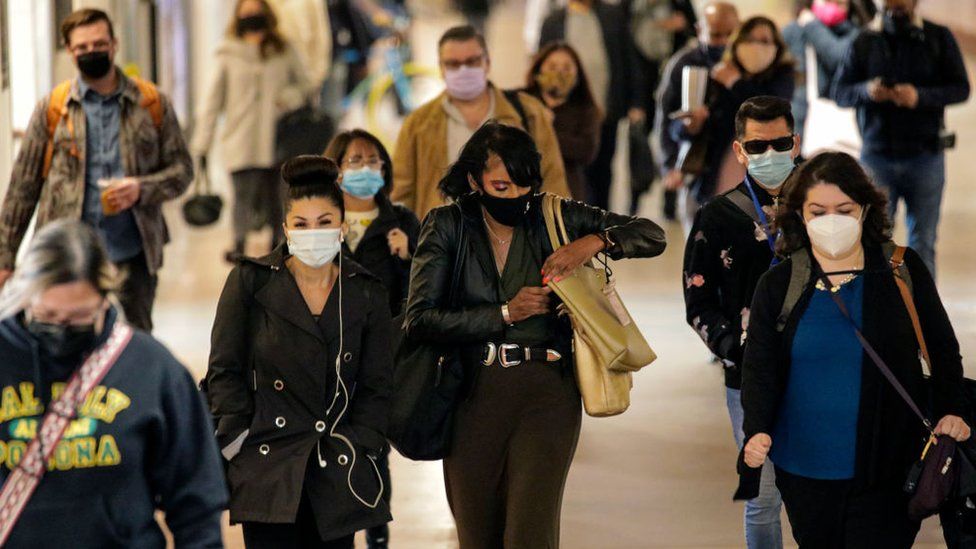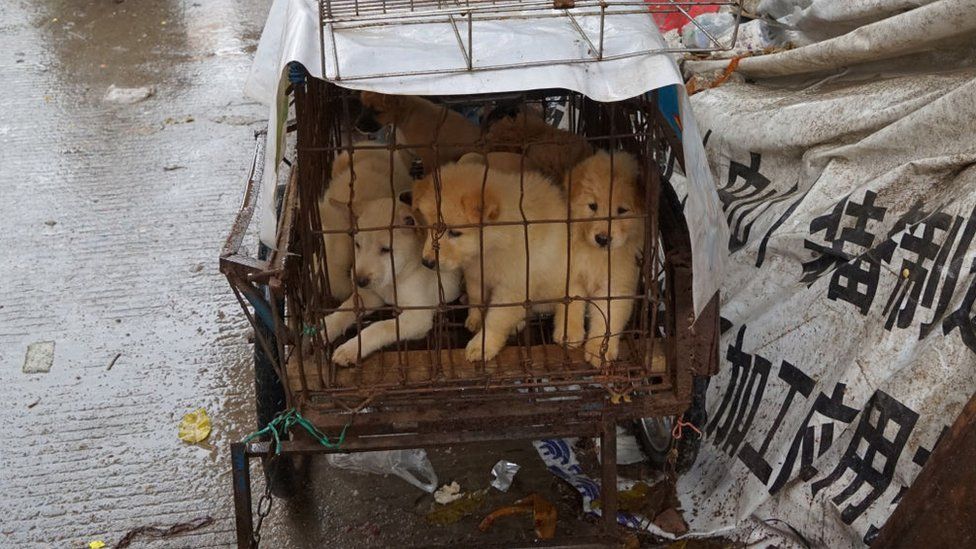
Covid-19 and Trump Business review of 2020
Business review of 2020: Covid-19 and Trump
For those still travelling to work, 2020 was the year wearing face masks became compulsory for many
The Covid-19 pandemic has not only generated a year of economic dislocation but it is also set to prompt radical long-term changes to how we live and work.
In addition, the pandemic once again highlighted the risks humans take by permitting small parts of the food supply industry to keep live animals in appalling conditions in tiny cages.
Nobody knows for sure, but the top theory is still that Covid-19 was bred in a live animal section of a “wet market” in Wuhan in China.
And then this virus was circulated effortlessly by one of mankind’s supposedly greatest achievements: cheap and frequent global air travel.
One man who has warned for years about wild animal markets is Peter Knights of the campaign group, Wild Aid, who describes them as “a small corner from hell”.

Puppies at a dog meat market in China: Covid-19 is likely to have been bred in a live animal section of a “wet market”
Wild Aid has film from China showing tiny cages full of geese, cats, snakes and other animals stacked on top of each other.
“The sound is of various animals in distress. The conditions are disgusting,” says Mr Knights, adding”we’ve got to stop [the live trade in exotic species for food]… it makes no sense to allow it to continue”.
Scientists point out that the 1918 Spanish flu pandemic is thought to have begun with birds, HIV with apes and Ebola with bats.
“These animals [in wildlife markets] will be very stressed in the small cages they’re kept in, and that makes for ideal conditions for diseases to multiply,” he says

Countries that took drastic measures to stop international travel were most successful at limiting Covid’s impact, says Prof Sridhar
This focus on food supply chains is supported by Devi Sridhar, professor of global public health at Edinburgh University.
“All it took for this to take place was a single spillover event. At some point one of the million or so viruses circulating in the animal kingdom jumped to a human and was able to sustain human-to-human transmission,” she says.
Governments should be “looking at our animal practices, deforestation, how we raise animals in factories, if we are using antibiotics and what conditions they are kept in,” she argues.
Read more: www.bbc.com



